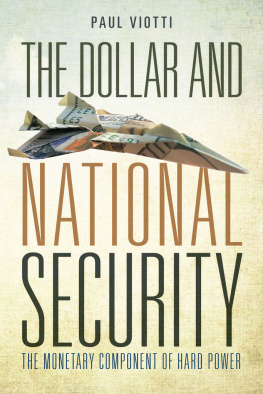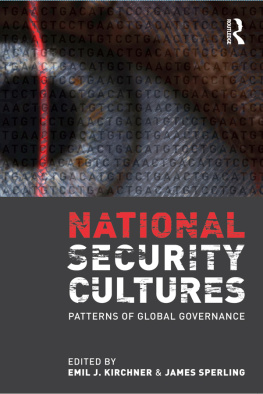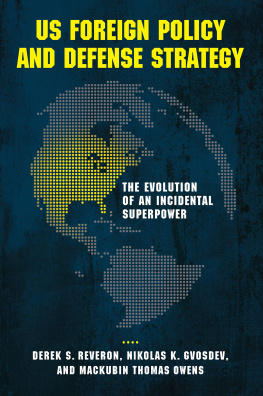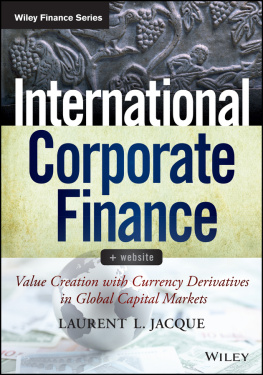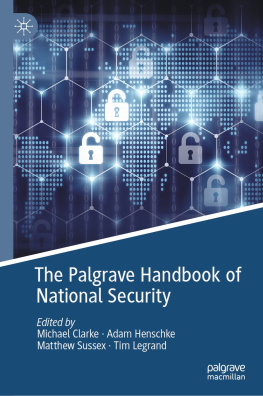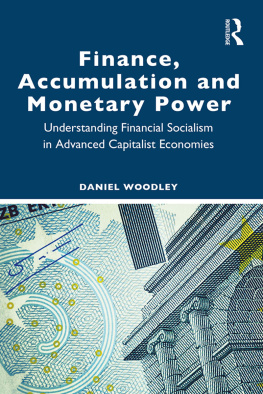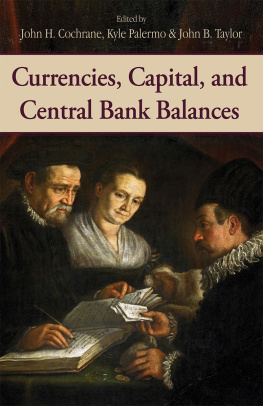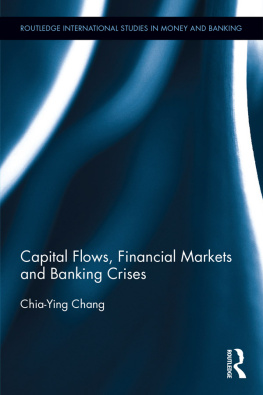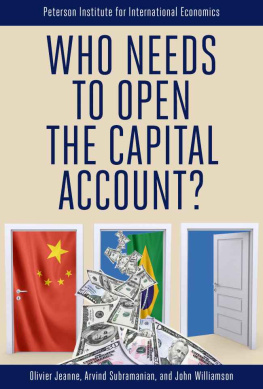Stanford University Press
Stanford, California
2014 by the Board of Trustees of the Leland Stanford Junior University.
All rights reserved.
No part of this book may be reproduced or transmitted in any form or by any means, electronic or mechanical, including photocopying and recording, or in any information storage or retrieval system without the prior written permission of Stanford University Press.
Printed in the United States of America on acid-free, archival-quality paper
Library of Congress Cataloging-in-Publication Data
Viotti, Paul R., author
The dollar and national security : the monetary component of hard power / Paul R. Viotti.
pages cm.
Includes bibliographical references and index.
ISBN 978-0-8047-9113-7 (cloth : alk. paper) ISBN 978-0-8047-9225-7 (pbk. : alk. paper)
1. National securityEconomic aspectsUnited StatesHistory. 2. Foreign exchangeUnited StatesHistory. 3. Monetary policyUnited StatesHistory. 4. Dollar, AmericanHistory. 5. National securityEconomic aspectsEuropeHistory. 6. Foreign exchangeEuropeHistory. 7. Monetary policyEuropeHistory. I. Title.
HC110.D4V56 2014
355'.033073dc23
2014010073
ISBN 978-0-8047-9230-1 (electronic)
Typeset at Stanford University Press in 10/14 Minion
Special discounts for bulk quantities of Stanford Security Studies are available to corporations, professional associations, and other organizations. For details and discount information, contact the special sales department of Stanford University Press. Tel: (650) 736-1782, Fax: (650) 736-1784
The Dollar and National Security
The Monetary Component of Hard Power
Paul R. Viotti
Stanford Security Studies
An Imprint of Stanford University Press
Stanford, California
To JOHN GERARD RUGGIE
for the conceptual insights he shared and the support he gave me and fellow doctoral students at Cal decades ago, which are as meaningful now as they were then.
Tables
Acknowledgments
There are many to whom Im indebted over many years of research on this project. Foremost among them for their direct impact on my work decades ago at Cal Berkeley are the late Ernst B. Haas and Kenneth N. Waltzthe dialectic in their thinking challenging my understandings of international relations and the economic component within IR; John G. Ruggie, to whom this volume is dedicated; and Richard Norgaard, who read earlier versions and commented on the economics side of international political economy.
For the common interest we share in the security implications of globalization, I refer to my friend and colleague at the University of Denver (DU), David Goldfischer. Ive relied on scholarly input from the economics side from three other friends and colleagues at DUHaider Khan, Kishore Kulkarni, and George deMartino. Other friends and colleagues who have offered their suggestionsas well as their encouragementinclude my decades-long friends Mark Kauppi and Dan Caldwell, John A. (Jay) Williams, Barry Hughes, Tom Farer, Alan Parrington, Warren Miller, Curtis Cook, and Brent Shapiro.
Phil Grub and Siegfried Garbuny at the George Washington University influenced my first work on this topic in the early 1970s. Editors with whom Ive worked closely, benefiting greatly from their inputs, include Geoffrey Burn, James Holt, and the late Henry Tom, with whom I also shared a Honolulu identity. Kudos also are due to my graduate research associates at the University of Denver, particularly Eric de Campos, Daniel Green, Nathan Vasher, Robert Shelala, Carina Solmirano, and Chris Saeger. Finally, my son, Paul R. Viotti, Jr., very generously took time to review the manuscript and make important suggestions drawn from his own work and study of political economy. He also gets credit for the idea of starting the book with a hypothetical scenario that underscores the importance to national and international security of the issues before us. Having acknowledged all of these constructive influences on my work, I accept full responsibility for any errors the reader may find in this volume.
Preface
The volume and quality of resources mobilized for use in foreign affairs depends on two factors: first, the productive capacity and wealth of the country, i.e., manpower, capital, and land, and second, the share of these resources, or their outputs, allocated to foreign policy.
Klaus Knorr
The discovery that banks could... create money came very early in the development of banking.... The process by which banks create money is so simple that the mind is repelled. Where something so important is involved, a deeper mystery seems only decent.
John Kenneth Galbraith
SCENARIO
It has been the best of times. Now it seems the worst of times. Several months of political wrangling have been ongoing in Washingtonlegislative calls by a powerful minority in the House and Senate for even deeper budget cuts, coupled with a threat to block any effort to raise the national debt ceiling. These threats to shut government down or force default on government obligations have spooked the markets, already resulting in another rating downgrade for U.S. Treasuries.
The crisis begins with a two-pronged attack on the New York Stock Exchange (NYSE). The first shock begins innocuously enough with a coordinated phishing attack at 11:30 a.m.hacker e-mails mimicking different offices in the New York Federal Reserve Bank that, because of their apparent identity, get ready access. These are not ordinary hackers with only short-term purposes in mind. No, the hackers are part of an insurgent group that wants to bring down American capital and, with it, the prominent position the U.S. dollar still enjoys in the global economy.
The phishers now have unfettered access to the NYSE secure server. Implanting malicious software, the phishers are not interested in downloading NYSE and corporate data. They want to delete information on record, destroying the massive archives of current past data in the NYSE servers memory. The phishers have also activated a botnettens of thousands of computers linked by the phishing attackthat overwhelms the NYSE server, causing it to freeze and then crash completely.
The NYSE is paralyzed and in complete turmoil. Panic erupts, spreading to other exchanges in the global market. Stock prices are down at least 20 percent worldwidesome more, others a few points less. The NYSE closes at noon, but since the server is down there is no way to communicate that through normal electronic channels to trading firms with seats on the exchange, not to mention investors who continue trying to place buy and sell orders. Television, radio, private e-mails, texts, phone calls, and social media are the principal outlets for communicating with trading houses and investors. If that were not enough, just as traders are clearing from the floor of the stock exchange, a high-explosive car bomb detonates in front of the exchange, killing pedestrians and bystanders and severely damaging the buildings faade.
This two-pronged attackcombining the impact of cyber and high explosiveshas devastating effects. Stock markets take a dive worldwide as people try to liquidate their assets. When the attack is understood as having been directed principally against the United States, where most damage was done, foreign markets gradually recover. The NYSE and other U.S. stock exchanges remain closed. There is a run, mostly on American banks. The president intervenes and, using Roosevelts Depression-era precedent, declares a bank holidayeffectively closing the banks and other financial institutions until order can be restored to capital markets.
Notwithstanding market interventions by European, Japanese, Chinese, and other treasuries and central banks, market forces overwhelm their capabilities and genuine, well-intended, collaborative efforts to hold the dollars position. These events undermine confidence in the U.S. economy and bring the dollar down to half its value vis--vis other major currencies. Unable to rely on the dollar for daily transactionsnot to mention its loss as a store of valuecorporate America is in disarray both at home and abroad
Next page
